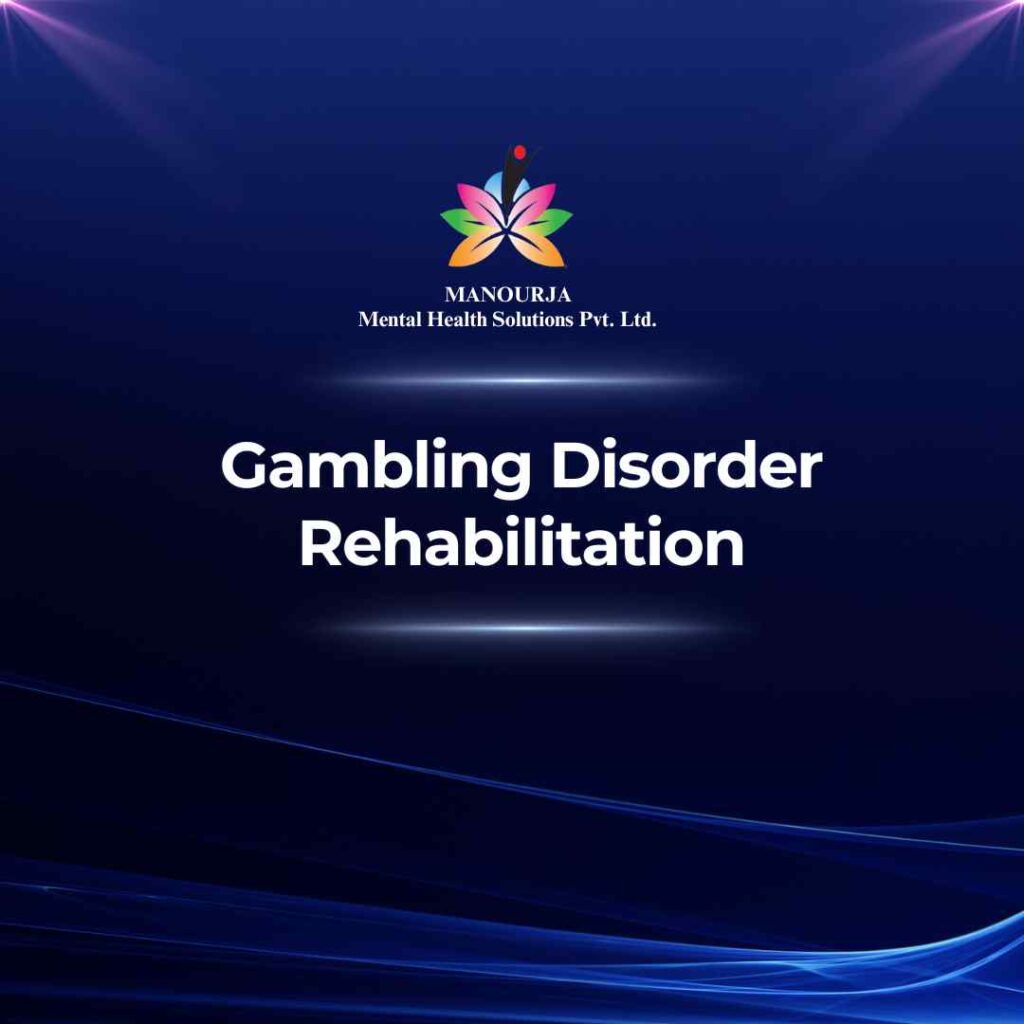Gambling Disorder Rehabilitation

Gambling Disorder is characterized by persistent and recurrent problematic gambling behavior leading to clinically significant impairment or distress. It is recognized as a behavioral addiction that can have severe financial, social, and psychological consequences.
Signs and Symptoms of Gambling Disorder
- Preoccupation with Gambling: Constant thoughts about gambling experiences, planning the next venture, or ways of getting money to gamble.
- Need to Gamble with Increasing Amounts of Money: In order to get the desired excitement.
- Repeated Unsuccessful Efforts to Control, Cut Back, or Stop Gambling: Demonstrating a lack of control.
- Restlessness or Irritability When Attempting to Cut Down or Stop Gambling: A withdrawal-like response.
- Gambling as a Way of Escaping from Problems: Or relieving feelings of helplessness, guilt, anxiety, or depression.
- Chasing Losses: The compulsion to get back money that has been lost, leading to continued gambling.
- Lying to Conceal the Extent of Involvement with Gambling: Dishonesty with family members, therapists, or others.
- Jeopardizing or Losing Significant Relationships, Job, Education, or Career Opportunities
- Relying on Others to Provide Money to Relieve Desperate Financial Situations: Caused by gambling.
Indicators for Outpatient Psychosocial Rehabilitation (OPD)
- Mild to Moderate Severity: Where the individual’s gambling behavior is problematic but still allows for some daily functional ability and where they are not at immediate risk of significant harm.
- Stable Home Environment: The presence of a supportive home environment that can encourage adherence to outpatient treatment.
- High Level of Motivation: Individuals who are highly motivated to change and have a strong commitment to recovery.
Indicators for Inpatient Psychosocial Rehabilitation (IPD)
- Severe Gambling Issues: Individuals whose gambling behavior has led to severe personal, financial, or legal problems, or who have lost significant relationships or employment.
- Co-occurring Disorders: Presence of additional mental health disorders such as depression, anxiety, or substance abuse that require an integrated treatment approach.
- Failed Outpatient Treatments: Individuals who have not benefited from outpatient treatment settings or need a more structured environment.
Factors Influencing the Decision
- Severity of the Disorder: More severe cases may require inpatient treatment.
- Presence of Additional Psychiatric Conditions: Co-occurring conditions might necessitate a more intensive treatment setting.
- Environmental Influences: Access to gambling opportunities and support systems.
How Psychosocial Rehabilitation Aids in Treating Gambling Disorder
Psychosocial rehabilitation focuses on interrupting addictive behaviors and helping individuals build a balanced, healthy lifestyle, addressing both the psychological impacts and the social disruptions caused by gambling.
Techniques and Approaches Utilized at MANOURJA
- Cognitive Behavioral Therapy (CBT): Helps individuals identify and change negative thinking patterns and behaviors associated with gambling.
- Motivational Interviewing (MI): Strengthens personal motivation and commitment to specific goals, focusing on the readiness to change.
- Group Therapy: Provides peer support, reduces feelings of isolation, and allows sharing of coping strategies.
- Family Therapy: Engages family members in the recovery process, repairing relationships and improving communication.
- Financial Counseling: Offers guidance on budget management, debt resolution, and financial planning to handle the economic impact of gambling.
Steps Followed at MANOURJA for Rehabilitation
- Comprehensive Assessment: Detailed evaluation of gambling behaviors, triggers, consequences, and co-occurring mental health conditions.
- Development of a Personalized Treatment Plan: Tailored to meet the specific needs of the individual.
- Implementation of Treatment Interventions: Engaging in scheduled therapy sessions and educational workshops.
- Continuous Monitoring and Adjustment: Regular review and adjustment of the treatment plan based on progress.
- Aftercare Planning: Strategies for maintaining gambling abstinence, managing triggers, and preventing relapse.
“Each day without gambling is a new win towards regaining control of your life.”
